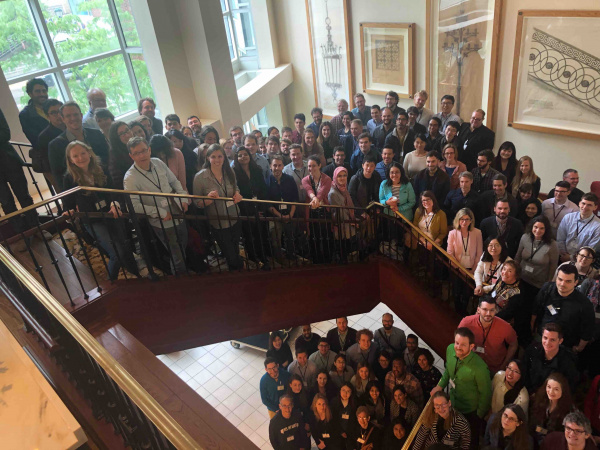Difference between revisions of "CEMS 2020"
(→Schedule) |
|||
| (4 intermediate revisions by the same user not shown) | |||
| Line 57: | Line 57: | ||
-- | -- | ||
| − | == Schedule == | + | <!--== Schedule == |
''If you are presenting and have scheduling conflicts, please let us know as soon as possible by emailing [mailto:context.symposium@gmail.com context.symposium@gmail.com]'' | ''If you are presenting and have scheduling conflicts, please let us know as soon as possible by emailing [mailto:context.symposium@gmail.com context.symposium@gmail.com]'' | ||
| Line 77: | Line 77: | ||
| || || || ** '''Discussant''': Suchow's discussant'' | | || || || ** '''Discussant''': Suchow's discussant'' | ||
|- | |- | ||
| − | | 11:55 || '''Buddhika Bellana''' ''(John Hopkins University)'': A persistent influence of narrative transportation on subsequent thought. || 1:10 || '''Samantha Audrain''' ''(University of Toronto)'': Prior knowledge accelerates neocortical integration at the expense | + | | 11:55 || '''Buddhika Bellana''' ''(John Hopkins University)'': A persistent influence of narrative transportation on subsequent thought. || 1:10 || '''Samantha Audrain''' ''(University of Toronto)'': Prior knowledge accelerates neocortical integration at the expense of episodic detail. |
| − | of episodic detail. | + | |
|| 11:55 || '''Christoph Weidemann''' ''(Swansea University; Columbia University)'': Neural measures of subsequent memory reflect endogenous variability in cognitive function. | || 11:55 || '''Christoph Weidemann''' ''(Swansea University; Columbia University)'': Neural measures of subsequent memory reflect endogenous variability in cognitive function. | ||
|- | |- | ||
| − | | | + | | 12:10 || '''Merika Sanders''' ''(University of Massachusetts Amherst)'': Manipulating representational demands of a memory discrimination task engages early brain regions || 12:25 || '''Neal Morton''' ''(University of Texas at Austin)'': Representations of common event structure in medial temporal lobe and frontoparietal cortex support efficient inference || 12:10 || '''Break''' |
|- | |- | ||
| − | | || | + | | 12:25 || '''Break''' || 1:40 || '''Break''' || 12:25 || '''Pedro Bordalo''' ''(University of Oxford)'': Memory and Representativeness. |
|- | |- | ||
| − | | | + | | || || || || || ** '''Discussant''': Bordalo's Discussant'' |
|- | |- | ||
| − | + | | 10:45 || '''Keynote Address: Daniel Schacter''' ''(Yale University)'': Constructing memory. || 11:20 || '''Katherine Duncan''' ''(University of Toronto)'': The lingering costs and benefits of novelty detection on memory. | |
| − | + | ||
| − | | 10:45 || '''Keynote Address: | + | |
|- | |- | ||
| || || || ** '''Discussant''': Nicole Long, ''University of Virginia'' | | || || || ** '''Discussant''': Nicole Long, ''University of Virginia'' | ||
| Line 130: | Line 127: | ||
|- | |- | ||
| || || || | | || || || | ||
| + | --> | ||
== Past Symposia == | == Past Symposia == | ||
Revision as of 21:21, 22 July 2020
The 2020 Context and Episodic Memory Symposium (CEMS) will be held virtually from August 16th-19th. Health-related safety concerns and ongoing travel restrictions have led us to adopt an online format for CEMS 2020.
In the past few weeks we have learned a great deal from the successes and challenges of other online conferences, and we are working to develop an online poster session format that will allow for meaningful and satisfying engagement for the CEMS community. This will include flexibility in the format and style of the poster presentations, as well as the creation of an intuitive system allowing attendees and poster presenters to interact with one another during the poster session itself. The symposium is designed to be a forum for the exchange of ideas among colleagues working on theoretical and empirical approaches to the study of context and episodic memory, broadly construed.
We will be in touch soon with more details about our virtual poster sessions, registration, and about the broader structure of the conference. In the meantime, if you have any questions, do not hesitate to email context.symposium@gmail.com.
--
Past Symposia
For information about past CEMS events, please click here.
